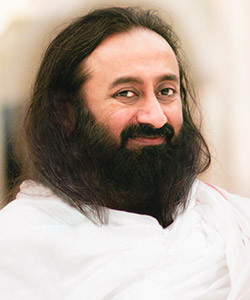
New Delhi: As we look forward to celebrating the 2nd International Yoga Day, we must understand yoga in totality. Yoga is one of the greatest wealths of humankind.
We think yoga is just a series of asanas (postures/exercises). However, asana is only one of the limbs of yoga; there is much more to it. Yoga means union; it unites our hearts, mind, body and spirit, and unites us with people around us. With its practice, the body becomes healthy and strong, the breath becomes quiver-free, the mind becomes pleasant, the intellect becomes sharp, intuition improves and self-realisation dawns in the consciousness.
Maharishi Patanjali, the founder of yoga, has said that the purpose of yoga is, 'Heyam dukham anagatam', i.e., to prevent misery even before it arrives.
Its benefits are multifold.
1. Health: Today, there is an awakening and people have recognized the importance of yoga. The world over, yoga has become synonymous with relaxation, happiness and a creative mind.
2. Behaviour: It changes the behaviour of a person because behaviour depends on the stress levels in a person. Pranayama and meditation equip us with tools and techniques to lead a stress-free and a tension-free life.
3. Vibrations: More than words we convey a lot through our presence; our vibrations. The more we come in touch with our deeper Self, the more powerful or vibrations become.
4. Communication: All of us emit vibes depending on the state of our being. When communication breaks down, we often say, 'Our wavelengths don't match'. Yoga makes our observation sharper, perception more accurate and expression clearer.
5. Removes prejudice: Another issue that we face in society today is prejudice - of religion, race, gender, class, educational status, financial status, etc. All these different types of prejudices have clogged the mind of men and that is how conflicts arise in society. With a holistic and expanded perspective that develops with Yoga, prejudice drops and we are able to reach out and go beyond conflicts.
6. Skills: It enables the development of skills within oneself. Lord Krishna has said, 'Yoga is skill in action' - how skillfully you can communicate, and how skillfully you can act in any given situation.
7. Happiness: What does everyone want? Everyone wants to be peaceful, happy and contented. However, if the mind keeps wavering between the past and the future, how can it be peaceful? We need to put effort to bring our mind to the present moment. This is called Yoga. Maharishi Patanjali has said 'Yoga Chitta Vrutti Nirodha' (Yoga happens when the mind is free from distortions or modulations.)
There are five types of modulations of the mind, which can be painful or not. The first is Pramaana - always thinking if this is right or wrong, wanting proof for everything. Within this there are three kinds of proof the mind looks for - Pratyaksha (experiential proof), Anumaana (inferential proof) and Agama (scriptural proof). The second modulation is Viparyaya - wrong understanding. The third is Vikalpa - imagination, hallucination. It is imagining something that is non-existent. The fourth is Nidra - Sleep. If you are not doing anything, you feel sleepy. The fifth is Smruti - Memory, remembering all that has happened in the past. We have to become free from these five modulations. Only then does the mind become peaceful and happy.
Having said this, does yoga conflict with any of our belief systems? If I believe in a particular religion, or a particular philosophy, or if I follow a particular political line of thought, does that come in conflict with yoga? I would say, "Not at all". It always promotes and encourages harmony in diversity as the word 'yoga' itself means 'uniting' (uniting diverse aspects of existence, of life).
The true dimension of yoga is connecting, going beyond the constraints of the mind and connecting with what Is -- and that is truth.
Courtesy: Zee News
